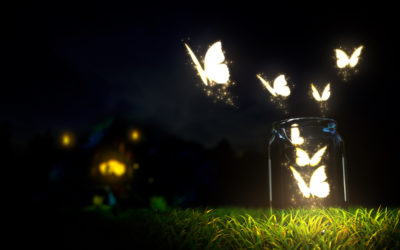Life on film, television and in our favourite novels is depicted as a series of dramatic moments between characters. Full of conflict, the tension builds as you ride a roller-coaster of emotion until eventually the events unfurl into a conclusion which tugs at your deepest heart strings. The pain and suffering our virtual friends endure would floor the best of us.
But there is something about the drama which keeps us coming back for more. We need to know what happens next, how our hero or heroine will survive the next scrape, who will get together with whom, and who the ‘baddie’ is. And no matter how unrealistic the storyline becomes, we soak up the emotions as we enjoy the ride.
Gossip is like this too. The person who gossips is getting a thrill from the telling of someone else’s misfortune and the person being told feels important to know. It sets up a cycle of emotion that can feel exciting and even more so when the gossip is particularly juicy. It doesn’t matter whether the gossip is true or false as long as it’s as dramatic as possible. The more controversial the story the more enthralled we become.
Drama does not just walk into your life. Either you create it, invite it, or associate with it ~ Brandi L. Bates
We live in a society that thrives on drama, that is in many ways built on drama – you only have to watch the daily news to experience this.
What happens to your brain when you see drama played out on the screen or in your life?
Your brain cannot tell the difference between something that is real and something that is imaginary. So when you watch drama or engage in gossip, the same chemicals are released as would be present if the events were happening to you. This charges your body with strong hormones giving you a temporary ‘high’ in a way which is similar to exercise. And these hormones can become addictive.
What happens is we get used to, almost numbed by the constant presence of these hormones and need more drama to achieve the same result. This is why the storylines in your favourite soap opera have become more outrageous over time. What used to elicit an emotion from you, now leaves you cold. So, the writers need to come up with ever more elaborate scripts to keep you hooked.
Not all drama is created by other people. Sure there are those who seem to live in a constant state of drama but there are degrees and in our current society it is difficult to avoid it all together.
Maturity starts when drama ends
Now you might be asking what this has to do with you?
Well, imagine your life is like a television show. Most of the time life is fairly humdrum, nothing much really happens on a day to day basis. We can find ourselves bored, tired of doing the same seemingly meaningless tasks day in and day out. Can you imagine watching a TV show where nothing happens? The characters get up, drop the kids to school, go to work, spend eight hours at a desk and then leave to do it all again in reverse.
So what do we do?
We create drama to relieve the monotony of our lives. Most of the time we do this without being aware of it. You may be bored and irritated so pick a fight with your partner. Or perhaps one of the kids drops their food on the floor you have just cleaned and instead of handling it calmly, on this occasion you yell at them. Perhaps you call a friend and have a moan about your partner, the kids, your boss at work … this creates drama as you paint a picture to your friend. Because your emotions are heightened, the story gets embellished with your feelings, it becomes bigger in your own mind than it probably is and you believe the version of events you are telling. And if you friend also has a story to tell … well you get the picture. Suddenly the events under discussion take on a life of their own becoming a soap opera in which the two of you are the main characters.
You each come off the phone feeling better. Someone has listened and most likely sympathised with your version of events and you have released some pent up energy. So the next time you feel annoyed, stressed or irritated, you do the same thing. And before long, you forget how to manage your own emotions and begin to become addicted to drama and the ‘high’ it creates. And as a result, you live your life lurching from one drama to the next. Even the smallest thing can be seen in a dramatic way. Your emotions are all over the place as the chemicals in your brain keep you in a constant state of imbalance.
Now you may be smiling as you recognise yourself, or nodding as you recognise someone else. Whilst there is an initial buzz, constant drama is exhausting. It leaves you drained of energy as the chemicals released in your brain actually damage the cells of your body. It also leaves the people around you exhausted as they endeavour to keep up with the soap opera you have created.
Learning to find balance is vital if you want peaceful and meaningful relationships – relationships with others and more importantly with yourself. If you become addicted to drama, you may find yourself overthinking, overanalysing aspects of your life until you drive yourself crazy. Drama is based in insecurity, fear, anger and helplessness. It is never created by love, joy, happiness or peace.
Drama = Stress
You may believe you are reducing stress by getting your thoughts and feelings out but there are healthier ways to do this.
- write your feelings in a diary
- go for a walk or a run
- listen to music until you feel your mind relax
- have a bubble bath
- remove yourself from people until you feel calm
- focus on the great things in your life
Become aware of when you are creating drama. And pay attention when other people create drama. Speak with a calm voice. Provide balance or keep quiet when someone is living their own soap opera. They want to feel the drama, they want to be the centre of attention and when you give it to them, it escalates engulfing both of you.
Take care of yourself by deciding not to ‘buy in’ to the drama addiction. Your life will change dramatically





0 Comments